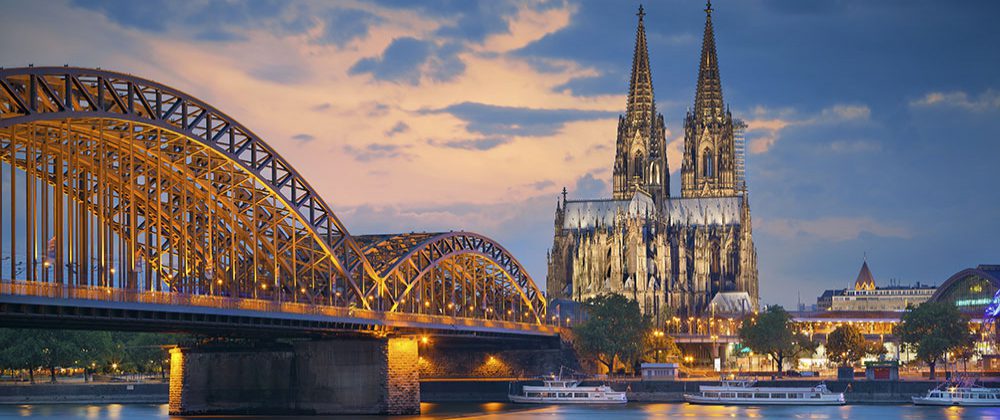Cities around the world are faced with new challenges that require a new approach to better serve communities and citizens. Limited resources are making it necessary to increase efficiency and do more with less, all while improving citizen services and safety. To do this, leaders are turning to digitisation. Whether in public transport or in a café, the majority of the population always expects an additional service: free Wi-Fi. More and more cities have recognised the importance of digitisation and are investing in public Wi-Fi networks as the basis for all Smart City projects.
Challenges
In order to equip a whole city with comprehensive Wi-Fi, there are some challenges that need to be overcome. The different structural and geographic conditions present a wide range of technical infrastructure requirements.
As one of the largest regional providers of modern telecommunication services in Germany, NetCologne wanted to tackle this challenge to supply the city of Cologne with access to a public Wi-Fi network throughout the city.
The focus was on all citizens being able to connect so not only would the inner city be equipped with a Wi-Fi network but also the trade fair and the Rheinenergiestadion, home of the 1. FC Köln football team.
“In order to offer the citizens of Cologne comprehensive Smart City services, we needed a reliable Wi-Fi infrastructure, on which all applications could be provided with the necessary bandwidth, quality of service and functionalities.
The various services should thus be transported and important applications, which are bandwidth critical or time-critical, should be made available. It was important to us that the network be available not only on busy tourist sites but also in remote parts of the city where you can meet the citizens of Cologne,” said Ivan Andric, Group Leader for System Consulting at NetCologne.
NetCologne was looking for a Wi-Fi solution that could handle all the challenges posed by the different locations. It was important that the network was able to withstand a high number of simultaneous users with high performance. For such a comprehensive, stable Wi-Fi coverage, NetCologne also needed the corresponding expertise for the implementation of the solution in addition to the carrier-grade equipment.
Solution
In search of a solution, NetCologne considered various providers. Through collaboration on other projects and using proof-of-concept (PoC) between the different vendors, NetCologne chose Ruckus as the clear winner. Ruckus’ carrier-grade equipment consisting of access points (APs) that easily provide seamless coverage for several hundred concurrent users met NetCologne’s requirements.
“What we needed was a solution that is available 24 hours a day, seven days a week, that can handle a very large number of users and provides a high level of security,” Andric commented. “Unlike other vendors, Ruckus offers carrier-grade and is a leader regarding outdoor coverage. No other provider has a comparable solution.”
NetCologne has installed up to 550 Ruckus APs across the entire city and over the next year, the plan is to add another 100 to 200 APs. For the outdoor area, it chose the Ruckus 7782 and T300 (2×2:2) outdoor APs, and for the indoor area, the R500 (2×2:2) was deployed. These APs provide a high performance and reliable 802.11ac wireless network. As opposed to all other 802.11ac Wi-Fi solutions of its class, they are equipped with the patented technologies BeamFlex and ChannelFly. The adaptive antenna technology, BeamFlex, automatically redirects each signal to the most powerful path. This ensures the best signal with the least possible interference. ChannelFly’s dynamic channel management uses BeamFlex to select the best channel.
This provides users with the highest throughput. This results in a consistent, predictable performance at a wider range with a BeamFlex gain of up to 4dB in addition to a physical antenna amplification and interference attenuation of up to 10dB.
Controlling the network and the integration into the public WLAN of Cologne is Ruckus’ Smart Cell Gateway (SCG) 200 in the data centre. The SCG 200 is the first of a new category of scalable and versatile WLAN controllers with support for 3GPP compliant wireless gateway functions. Thus, Cologne is one of the few cities in Germany that offers a consistent Wi-Fi experience in the city, at the fair and the stadium.
With the new Wi-Fi installation, the Rheinenergiestadion is one of only five stadiums in Germany offering visitors free Wi-Fi access. Stadium visitors are thrilled about the new Wi-Fi, which allows for undisturbed surfing in the sold-out stadium. And the operators are also satisfied with the Ruckus solution, not only because they can offer a service with real added value, but also because the low number of APs kept the costs and reconstructions within limits.
Continuing with the Smart City project, Neusser Street in Cologne became a climatic road, in which the most important energy projects are being implemented. On 1.7 kilometres, 14 APs supply Wi-Fi for the entire street.
Together with additional sensors, a smart metering solution was developed that significantly reduced power consumption and CO2 emissions.
“We are very proud of the installation and the design of the solution,” Andric said. “By working with Ruckus, we were able to create a solution that offers citizens a real added value and a very special stadium experience.”
Whether in the old town, on the Rheinboulevard or in the stadium: no other city in Germany currently offers comparable public access, which allows users to surf free of charge around the clock. To date, about 10% of the city of Cologne has been connected to the Wi-Fi network and up to 1.8 million subscribers connect every month — further areas are expected to follow in the coming months.


